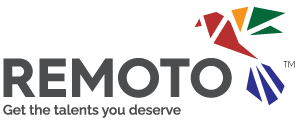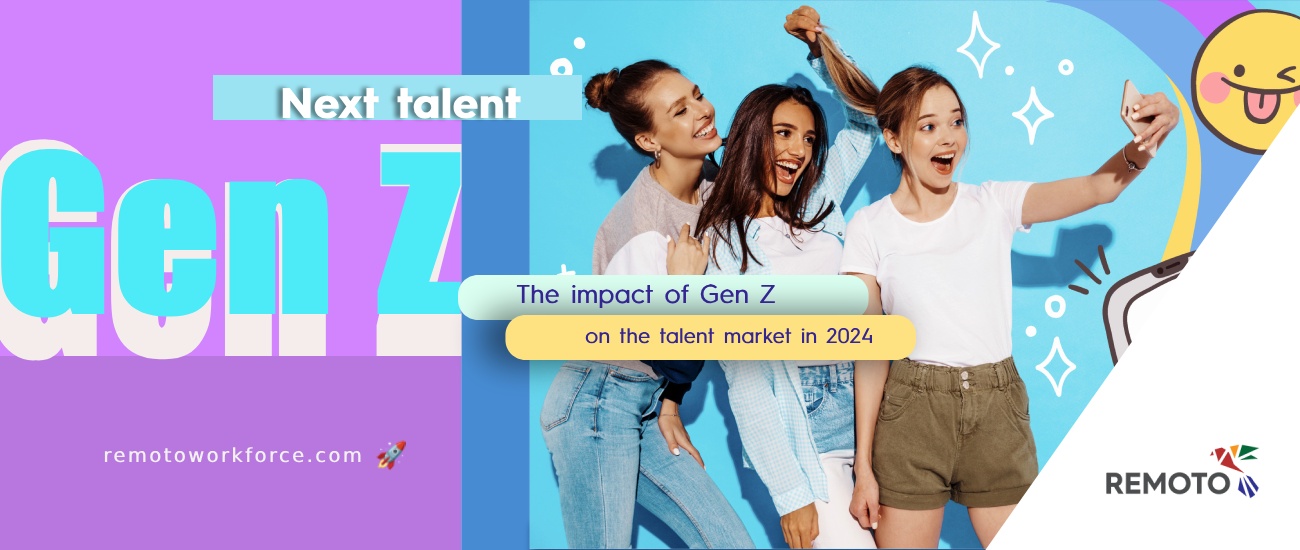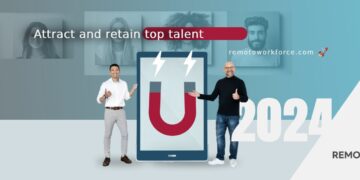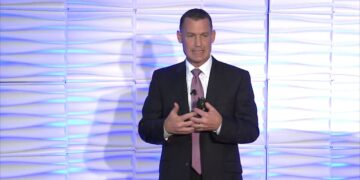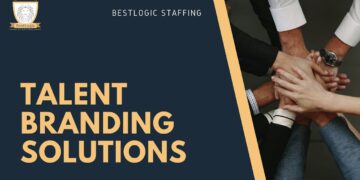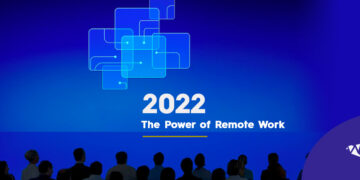A seismic shift is occurring in the global workforce in 2024. By the end of this year, Gen Z is set to comprise over 25% of the global workforce. This isn’t just a number; it’s a big event that will change the way work is done and how people find jobs for years to come.
The emergence of Gen Z marks more than just a change in numbers; it’s a change in organizational cultures worldwide. Gen Z has new ideas, better digital skills, and values that are different from older generations. They are not happy with the way things are. They are making companies change how they do things.
Understanding Gen Z is essential. For companies aiming to attract and retain top talent, engaging with this generation is a critical priority. Their unique values and expectations are changing how employers do business. They are pushing companies to be more real, flexible, and responsible for the community.
In this blog post, we’ll address everything you need to know about the role of Gen Z in the global workforce in 2024.
Decoding Gen Z: Characteristics and Priorities
Gen Z has unique qualities and preferences when it comes to employment. Let’s explore their values, inclination towards fulfilling work, pursuit of security, and aspiration for a balanced work-life.
Values Alignment
Gen Z is on a mission to find more than just a job; they seek a purpose.
They prioritize working for employers who align with their beliefs, particularly regarding social and environmental matters. Furthermore, they have a strong interest in climate change, social equality, and ethical leadership, and they anticipate their employers to demonstrate similar values and take action towards them.
This emphasis on values alignment has a profound impact on employer branding.
Companies can no longer afford to be ambiguous or insincere about their missions. Authenticity is paramount. Gen Z demands transparency and accountability, and they are adept at spotting disingenuous efforts. Companies must demonstrate genuine commitment to corporate social responsibility and ethical business practices to gain their trust and loyalty.
Gen Z expects businesses to take tangible steps toward making a positive impact, whether through sustainability initiatives, community engagement, or fair labor practices. This implies that for employers, building a genuine brand involves more than just advertising; it involves integrating these principles at the heart of the organization’s activities.
Meaningful Work: Seeking Impactful Roles
Gen Z thinks work is more than just a way to get something done. It’s a big part of who they are and a way to make a difference. They highly value roles that contribute positively to society and allow them to leave a meaningful mark.
In fact, 37% of Gen Z consider meaningful work to be the most important aspect of a job. This desire for impact drives them to seek out employers who offer opportunities to engage in projects that align with their passions and values.
Expectations of engagement are high. Gen Z employees appreciate roles that provide excitement and personal fulfillment.
They are drawn to projects that challenge them, foster creativity, and contribute to the greater good. Employers who can offer such opportunities not only attract top talent but also benefit from the energy and innovation that these passionate individuals bring to the table.
Furthermore, Gen Z is not content with being passive participants. They want to be actively involved in shaping their work and the direction of their companies.
This means they value open communication, collaborative environments, and the ability to contribute ideas. Employers who encourage this level of engagement are more likely to harness the full potential of their Gen Z employees.
The Pursuit of Stability
While purpose and meaning are crucial, financial security remains a top concern for Gen Z, especially in the face of economic uncertainties and rising living costs.
They are entering the workforce during a time of financial volatility, which heightens their focus on stability and adequate compensation. Unlike some previous generations, they may be willing to trade off certain perks—like remote work options or leisure activities—in favor of better salaries.
This focus on financial stability impacts their job choices significantly. Competitive compensation packages are essential to attract Gen Z talent.
Employers who recognize this and offer fair, transparent salary structures stand a better chance of securing their commitment. Additionally, companies that provide financial education and resources to help manage personal finances can set themselves apart as supportive and caring employers.
It’s also worth noting that financial concerns influence Gen Z’s perceptions of long-term career prospects. They are keenly aware of the need to plan for the future and may prioritize employers who offer not just immediate financial rewards but also benefits like retirement plans, health insurance, and opportunities for financial growth within the company.
Work-Life Balance and Wellbeing
Gen Z places a high premium on maintaining a healthy balance between work and personal life. They have witnessed the burnout and stress experienced by previous generations and are determined to chart a different course.
Flexibility in work arrangements—such as flexible hours, remote work options, and generous leave policies—is highly appreciated and often expected.
Mental health awareness is another critical aspect of their well-being priorities.
High levels of stress and mental health issues are prevalent among Gen Z, partly due to social pressures and the always-on nature of digital life. They seek employers who take mental health seriously, providing support systems, resources, and a culture that promotes open discussions about wellbeing.
Employers who recognize and address these needs can foster a more engaged and productive workforce. By promoting policies that support work-life integration and by creating an environment where employees feel valued not just for their work but as whole individuals, companies can enhance satisfaction and reduce turnover.
Gen Z’s Impact on Talent Market Dynamics
Curious about how Gen Z will affect the talent market dynamics in 2024? We have all the answers!
The Demand for Flexibility
Gen Z’s entry into the workforce prompts employers to reevaluate traditional work models.
The demand for flexibility is reshaping policies around work hours and locations. Increased adoption of flexible work hours and remote work options is becoming the norm rather than the exception. Employers realize that to meet Gen Z expectations, they must move away from rigid structures and towards more adaptable arrangements.
This shift extends beyond schedules and locations; it influences how work is assigned and how teams collaborate. Gen Z values autonomy and the ability to work in ways that suit their productivity patterns. Employers who offer flexible arrangements not only meet their needs but also tap into a more motivated and efficient workforce.
The influence on corporate culture is also significant. There’s a greater emphasis on diversity, equity, and inclusion initiatives.
Companies are fostering cultures that celebrate individuality and collaboration, recognizing that a diverse workforce drives innovation and reflects a globalized market. Gen Z’s insistence on inclusivity pushes companies to be more proactive in creating equitable environments.
Driving Digital Transformation
As true digital natives, Gen Z has grown up with technology at their fingertips. They are pushing for the integration of advanced technologies in the workplace, expecting employers to utilize modern tools to enhance efficiency and collaboration. This includes not just standard office software but cutting-edge technologies like artificial intelligence (AI) and automation.
Their comfort with technology is accelerating digital transformation across industries. Employers are encouraged to adopt new platforms and tools to stay competitive and meet the expectations of this tech-savvy generation. Gen Z employees can often lead the way in implementing and optimizing these technologies, providing valuable insights and skills.
However, their adaptation to AI and automation comes with mixed emotions. While they are excited about the potential for innovation, there is also anxiety about AI’s impact on job security.
Employers can address this by providing training on new technologies, ensuring that employees are equipped to work alongside AI rather than be replaced by it. This proactive approach can alleviate concerns and foster a culture of continuous learning.
Adapting Recruitment Strategies
The traditional methods of talent acquisition are evolving under the influence of Gen Z. There’s an increased emphasis on showcasing company values and culture during recruitment processes.
Employers are using social media and digital platforms not just to advertise positions but to engage with potential candidates, offering a glimpse into the company’s ethos and work environment.
Enhanced employee engagement is also critical for retention. Programs that promote well-being, satisfaction, and professional growth are becoming standard practice. Recognizing the importance of feedback and open communication, employers are implementing regular check-ins, surveys, and forums where employees can voice their opinions and ideas.
These shifts are not just about attracting Gen Z talent but also about creating a workplace where they can thrive. By adapting recruitment and retention strategies to align with their preferences, employers can build stronger teams and foster long-term loyalty.
Strategies for Employers to Engage Gen Z
Do you want to learn how to engage with Gen Z in the workplace? We tell you how.
Building Trust Through Action
To effectively engage Gen Z, employers must align their company values with the beliefs of this generation. Implementing corporate social responsibility initiatives is a powerful way to demonstrate commitment. Engaging in community projects, sustainability efforts, and ethical practices shows that the company is serious about making a positive impact.
Communication is crucial. These initiatives should be communicated internally to employees and externally to the public. Transparency about goals, progress, and challenges builds trust. Ethical business practices, upheld with integrity in all operations, foster a culture of transparency that resonates with Gen Z.
Engaging Hearts and Minds
Providing opportunities for purpose-driven projects allows Gen Z employees to feel that their work matters. Involving them in initiatives that contribute to societal good not only satisfies their desire for meaningful work but also brings fresh perspectives and enthusiasm to the company.
Employee involvement in decision-making enhances this engagement. Encouraging feedback and ideas from Gen Z employees empowers them to take ownership of projects. This collaborative approach can lead to innovative solutions and a more dynamic work environment.
Highlighting the impact of their contributions reinforces the connection between their efforts and the broader goals of the company. Recognition and appreciation go a long way in fostering motivation and loyalty.
Nurturing Growth
Mentorship and coaching programs are effective tools for supporting Gen Z’s desire for personal growth. Pairing them with experienced mentors offers guidance and insight into career development. This relationship-building can enhance skills, confidence, and satisfaction.
Performance recognition is equally important. Acknowledging achievements and providing constructive feedback helps Gen Z employees understand their progress and areas for improvement. Implementing fair promotion practices ensures that advancement opportunities are accessible and based on merit.
By investing in their development, employers can cultivate a skilled and dedicated workforce. Clear pathways for advancement encourage long-term commitment and align individual aspirations with organizational goals.
Fostering a Learning Culture
Providing access to training opportunities, courses, workshops, and certifications supports both technical and soft skill development. Gen Z values continuous improvement, and employers who facilitate learning can enhance their capabilities and adaptability.
Creating a learning culture involves more than offering resources; it requires encouraging curiosity and allocating time and resources for learning activities. Supporting employees in their educational pursuits demonstrates a commitment to their personal and professional growth.
This investment pays dividends in innovation, efficiency, and employee satisfaction. A workforce that is continually learning is better equipped to navigate the challenges of a rapidly changing business landscape.
Prioritizing Employee Health
Implementing flexible work arrangements, such as remote work options and flexible schedules, supports work-life integration. Recognizing that employees have responsibilities and interests outside of work enhances their overall well-being.
Wellness programs that provide mental health resources, such as counseling and stress management workshops, promote a healthy workplace environment. Encouraging physical health through fitness initiatives or healthy eating options can also contribute to overall wellbeing.
By prioritizing employee health, employers demonstrate care and respect for their team members. This not only improves morale but can lead to increased productivity and reduced absenteeism.
Leading the Future with Technology
Integrating AI and other advanced technologies to streamline processes positions the company at the forefront of innovation. Involving Gen Z in tech implementation projects leverages their skills and enthusiasm for technology.
Using modern digital communication platforms enhances collaboration and engagement. Ensuring that these tools are accessible and easy to use allows all team members to participate fully.
Embracing technological innovation is not just about tools but about mindset. Encouraging experimentation, supporting new ideas, and staying abreast of technological trends keeps the organization agile and competitive.
Conclusion
The impact of Gen Z on the talent market in 2024 is profound and far-reaching. They are redefining expectations around recruitment, retention, and workplace culture. Their priorities—such as values alignment, meaningful work, financial stability and work-life balance—are influencing how companies operate.
For employers, this is an opportunity to engage with Gen Z proactively. By adapting business practices to meet their needs and leveraging their strengths, companies can gain innovation and a competitive advantage. A committed and satisfied Gen Z workforce contributes not just to immediate success but to long-term sustainability.
Embracing the Gen Z effect requires openness, adaptability, and a genuine commitment to the values that matter to this generation. Those who rise to the challenge will not only attract top talent but also position themselves as leaders in a rapidly evolving global market.
